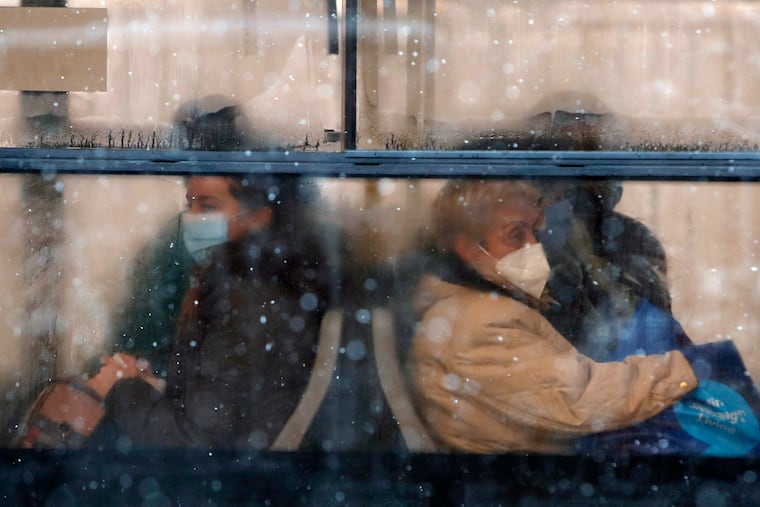I received the COVID-19 vaccine, but I can’t let my guard down | Expert Opinion
The vaccine prevents symptomatic infection, but it is unknown to what extent vaccinated individuals may spread of the virus to others. That's why distancing and masking are still essential.

I received my first dose of the COVID-19 vaccine this week. The mild arm soreness I experienced at the injection site was somewhat numbed by an overwhelming sense of excitement and relief that I’ve taken the first step toward returning to the life I used to know. Now I can finally say I’ve “walked the talk.”
Since that fateful day though, conversations with my patients around vaccination have begun to change. “So doc, are you going to get the vaccine?” has been largely replaced by, “How soon can I get the vaccine?” or, “Can you make sure I’m on the high-priority list?”
Right now, I have little new information to offer about vaccine distribution, as states are still creating their road maps. But I’m encouraged by my patients’ acceptance and sense of urgency, which I hope was fueled in part by my practice’s positioning the vaccine in a positive light. During these conversations, I reiterate that the vaccine is safe and highly effective, and compliment my patients for their courage and sense of duty to help get this pandemic under control.
Although most of our office employees and clinicians have been vaccinated, we must actively model the importance of ongoing social distancing and masking precautions, which must continue during the mass vaccination process. The vaccine prevents symptomatic infection, but it is unknown to what extent vaccinated individuals may carry and promote spread of the virus to others.
» READ MORE: All your COVID-19 vaccine questions, answered
The time we spend engaging patients in conversations about vaccination is still eclipsed by calls from infected patients. We balance our excitement about vaccination with the reality of a raging pandemic, and the emergence of a different strain of the virus, which may present new challenges. I have struggled to find the best response to my patients’ questions and mounting enthusiasm for the vaccine, and so far I’ve arrived at this:
“I appreciate and fully support your enthusiasm for getting vaccinated against COVID-19, and will let you know as soon as we hear of an opportunity for you to receive it. In the meantime, be more vigilant than ever about masking, social distancing and hand washing. This has never been more important.”
It is a challenge trying to be a social influencer for vaccine acceptance and COVID-19 precautions at the same time, but both are equally vital. We all want to see the distribution of vaccine coincide with a reduction of symptomatic infection, hospitalization and death. The reality is not as sequential. Ending the pandemic will require widespread vaccination, in concert with continued vigilant attention to transmission precautions.
As with most things, one of my patients said it best. When a friend, excited about the vaccine’s prospects, asked him, “So how soon do you think the vaccine will get us out of this mess?” He said, “That vaccine is not going to get us out of anything. We are.”
Jeffrey Millstein is a primary-care physician and medical director for patient experience-regional practices at Penn Medicine.